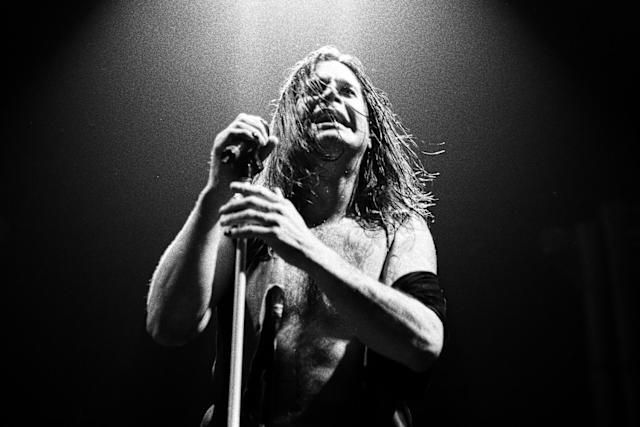Number 9 – Peter Allen’s Tenterfield Saddler
- xwaxinglyricalx

- Jul 8, 2025
- 4 min read
Few Australian musical artists ever achieved the international level of renown that Peter Allen experienced at his peak, which makes his near-total erasure from public consciousness in 2025 all the more baffling and disappointing. He toured extensively through America and England in his capacity as a singer and cabaret performer. He wrote a number of globally acclaimed songs with ‘I Honestly Love You’ being the most successful, due to it being a number one hit in many countries for Olivia Newton-John. In Australia, he’s most known for that QANTAS ad – ‘I Still Call Australia Home’. It’s hard to examine that song objectively anymore given its overexposure, but if you can, it holds up.
Look at something as ‘simple’ as the scansion of ‘Australia’ within the song. More than a few artists have written songs – even great songs – with ‘Australia’ in the lyric, and they all get the inflection wrong. Allen doesn’t; it’s ‘Au-STRAY-Lia’, as it’s meant to me. Three syllables (not four!), with the emphasis in the middle. It makes a difference. Sentimental maybe, but then it’s a song about home, and where else better to keep one’s sentiments? Musically, it’s highly accomplished, too. It has a lilting quality that one finds in a lot of Allen’s best work, and for my mind, his very best work is a song he wrote in 1970 and released in 1972. That song is called ‘Tenterfield Saddler’.
It's an autobiographical song, in that Allen’s grandfather really was George Woolnough, and he was a saddler in Tenterfield. Allen’s father was a war-scarred alcoholic who took his own life when Allen was just fourteen. And remarkably, they really were building a library in honour of his grandfather when Allen wrote the song. And as true as these details might be, they are features of a lyric that manages to convey a rich, heartbreaking, three-generation family saga in under four minutes.
The construction of the song is masterful, both lyrically and musically. In essence, the song is a waltz, but it’s too stop-start to be a danceable one. The pauses are integral to the narrative shifts. The opening verse establishes the grandfather with loving care, as befits Allen’s love for the man. He’s given a central place in the life of his town, in which he is a knowing and respected figure. The song’s initial descending melody suddenly kicks up on the word ‘questions’ before descending once again. The real genius of this isn’t revealed until the second verse, however, because, following the tragic death of his son, George has ‘no answers’ this time.
The fact that George has no answers as to why ‘his son/ ever had need of a gun’ is doubly poignant, in that can apply to both the gun he carried in World War II that left him broken, or the one he used to subsequently take his own life. It’s not the only deliberate ambiguity. When Allen says – in reference to the ‘war baby’ ( a reference to Allen himself) – that ‘something was wrong’, it can be applied to the post-traumatic stress that his father was forced to endure, but it can also apply to Allen’s homosexuality. Although Allen accepted his homosexuality, it did take him a while, and he never ‘officially’ came out. Whether Allen’s father detected this in the young Allen and found it problematic is uncertain, but his father’s violent alcoholism was most certainly a part of the young Allen’s life. No doubt this played a considerable part in why he found it much easier to love his grandfather, who ‘lived without sin’, compared to his deeply troubled father.
Within the context of the song, the library is deeply significant, in that the saddler’s time has come and gone. The library thus serves as an act of preservation, of remembrance. And it illuminates the meaning behind the song’s chorus. ‘Ride again, Jackaroo’ becomes an exhortation for something that has faded to return to life, whilst also acknowledging that within an act of remembrance, the saddle-requiring jackaroo rides for all time.
The fact that time itself is a traveller is fascinating. More than anything else, it gives the song a metaphysical, almost spiritual quality. All told, the song is almost hymnal in tone if not in composition. Whilst some of the language – jackaroo and kangaroo, emu and cockatoo – is overtly Australian, it’s the song’s grounding in a deeply evocative Australian saga that touches most deeply. The passing of time that encompasses the slow fade of a man esteemed for a dying profession, the tragedy of PTSD that affected so many Australian men throughout the 20th century because of war, and finally, the challenges faced by the most recent generation in reconciling themselves to a past that in no way resembles their own presence. It’s not easy, and sometimes the memories and thoughts that come are unwanted. After all, time isn’t just a traveller in the song, but a meddler. And yet finally, the memories come to rest, to a state of repose, within the song itself.
‘Tenterfield Sadler’ has one of the most mournful, beautiful, elegiac and tender melodies of all Australian songs. Its lyric is a masterclass in empathic, economical storytelling, and it pulls me into a world that I recognise as my own, even if my place within it is removed from Allen’s. If this song was Allen’s single achievement, it would still be enough to secure an important legacy. As it is, he wrote many wonderful songs, and he deserves a more esteemed place in the hearts and minds of Australians today. I fear that there aren’t a lot of Australians under 40 who know much about Allen at all. And that’s a shame, because there are very few songs out there that are as good as this one.

Comments